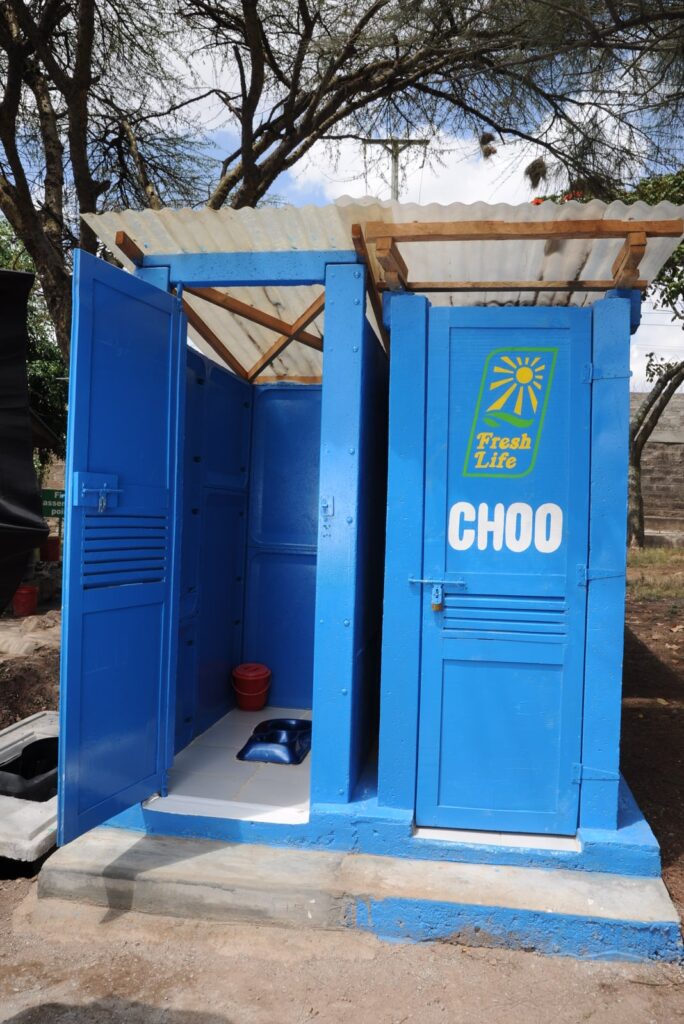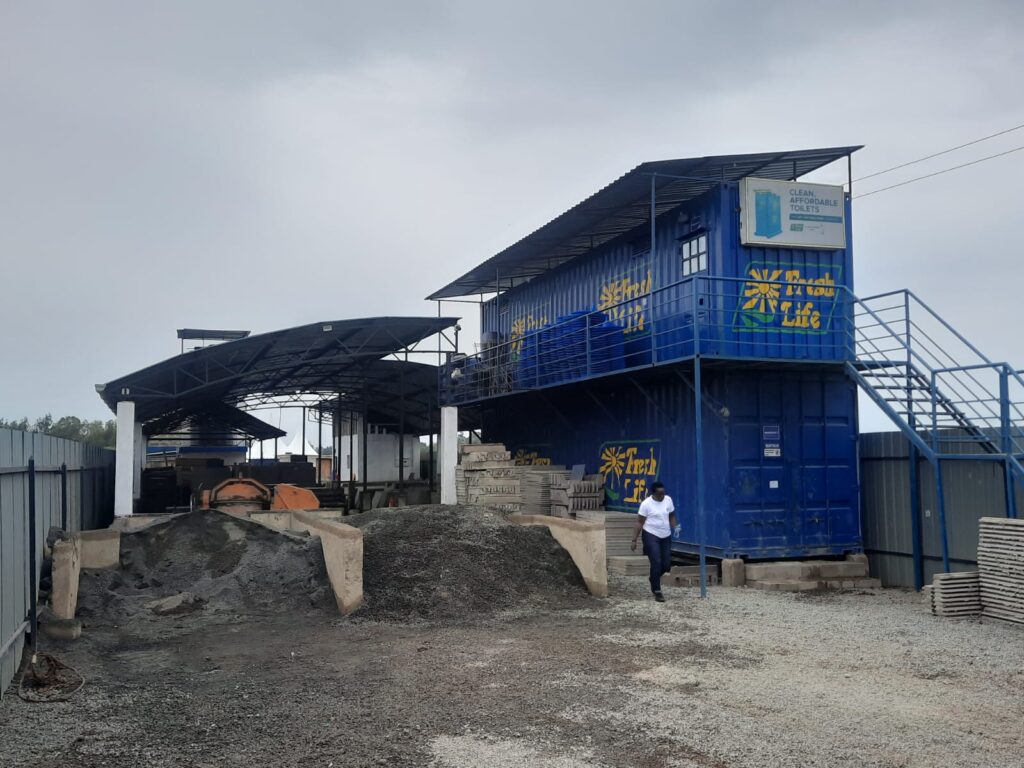For decades, improper human waste disposal has been a challenge to Kisumu slum dwellers.
With data showing 87 per cent water coverage against 18 per cent sewer coverage in Kisumu in 2019, there was need to focus on sanitation.
During the World Toilet Day in November 2020, Fresh Life Toilet launched the first toilet in Nyalenda, Kisumu.
This was in partnership with the Kisumu Water and Sanitation Company (KIWASCO).
“We started our operations to complement KIWASCO’s sanitation coverage and services in Kisumu,” said Fresh Life MD Meltus Mugomi during the official launch of the company on Thursday.
We have done a new partnership that will now enable us to go beyond Nyalenda
Fresh Life MD Meltus Mugomi
The Toilets
Fresh Life begun its operations in Nairobi’s Mukuru Slums ten years ago.
In Nairobi, the entity has set up over 2, 600 latrines, serving over 200, 000 people in ten informal settlements.
The toilets are high-quality, low-cost sanitation units.
They have a urine-diverting squat plate which separate solid and liquid waste to make it easier for collection.
To maintain hygiene amenities, have a handwashing station with soap, water and a bin for feminine hygiene products.
The project in Kisumu begun with 20 employees.
Fast forward, after operating for more than a year the organization now has 60 employees.
We are now moving to ensure this service is expanded to other areas help rehabilitate the ecosystem and bring safe sanitation to the residents of Kisumu
Dr. Ganda
Extension
During the event KIWASCO signed an extension of the memorandum for the project by five years.
Speaking during the launch at KIWASCO’s Kasagam waste lagoon, Mugomi said that the company will now be extending its services to other parts of Kisumu.

“We have done a new partnership that will now enable us to go beyond Nyalenda,” he said.
According to the MD the project is currently having 600 latrines that serve a population of about 15,000 residents of Nyalenda every day.
In Kisumu 75 per cent of our population are using a toilet, but only 25 per cent are using improved toilet which prevent infections
Dr. Gregory Ganda
The project is able to produce 50 latrines every month, but the production depends on the demand.
Kisumu Health CEC Dr.Gregory Ganda said that project has since developed new service delivery models to provide hygienic sanitation.
“In Kisumu 75 per cent of our population are using a toilet, but only 25 per cent are using improved toilet which prevent infections,” he said.
He says since the start of the Fresh Life project, unsafe waste management has reduced in the slum.
“We are now moving to ensure this service is expanded to other areas help rehabilitate the ecosystem and bring safe sanitation to the residents of Kisumu,” he furthered.
According to Dr. Ganda more than half of the city’s population lives in slums and the sewerage coverage is very low.
As a result, unsafe waste management has been rampant.
We are targeting over 2000 toilets for the expansion program and the first 500 will be ready by the end of March
Fresh Life MD Meltus Mugomi
New project
With Fresh Life now moving to Manyatta and Obunga slums KIWASCO is now hoping to move up the sanitation coverage.
“We are targeting over 2000 toilets for the expansion program and the first 500 will be ready by the end of March,” echoed Mugomi.
To acquire the facilities individuals, pay a deposit of Sh850, and another Sh850 every month, to cater for the maintenance and collection of the waste.

The beneficiaries get starter kits, which include mop buckets, mops, hand washing station, gloves, cleaning brush, tissue, sawdust.
The technology does not require water, but the sawdust in place of water to cover the solid waste.
This helps to absorb water from the solid waste, hence reducing the bad smell, and then controlling houseflies.
